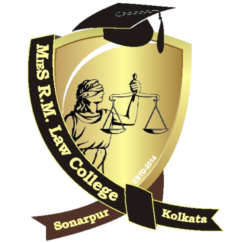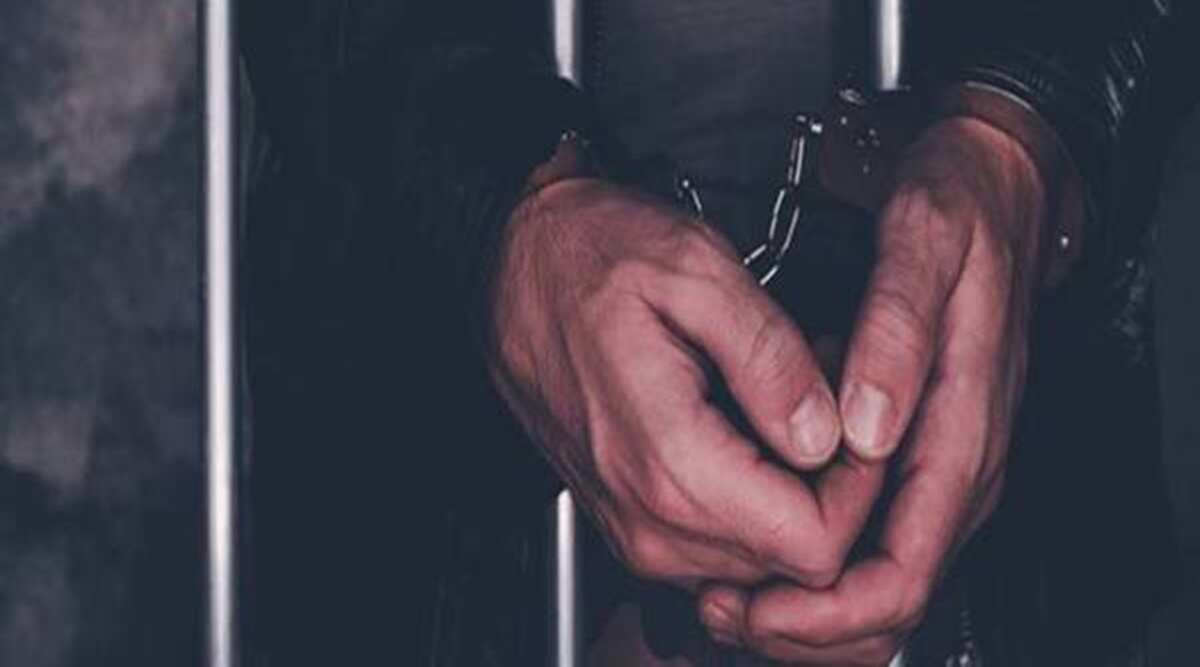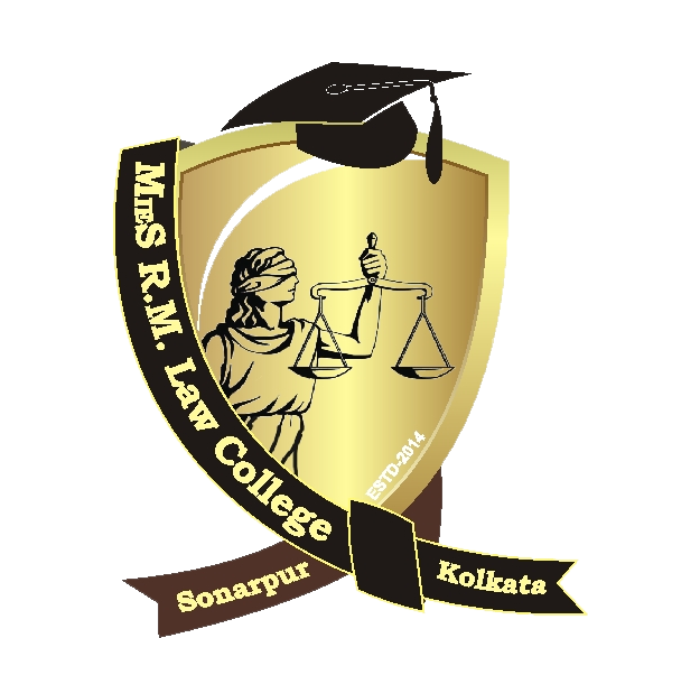Rights of Undertrial Prisoners in India
A privilege to introduce a write-up from one of the top law colleges for the LL.B degree course, MIES R M Law College, Kolkata. An article on “Rights of Undertrial Prisoners in India” has been written by Anupa Dey, faculty of this excellent law college, Anupa Dey is associated with MIES R M Law College for the last 2 years. MIES R M Law College is one of the Best law schools in West Bengal, situated at Sonarpur, South Kolkata. MIES R M Law College, Kolkata completed many years with its glorious journey in the field of law education.
The College has a highly qualified and competent team of faculty, enormous world-class infrastructure, and facilities most conducive to academic pursuit along with its remarkably successful campus placements along with a student-friendly environment. MIES RM Law College is one of the best legal education providers in India under the Vidyasagar University, West Bengal, and is approved by the State Government as well as the Bar Council of India.
We assure you that you are stepping into the right place as we are the one & only law college in south Kolkata which provide legal help to the downtrodden people of the society and also we take extra care of our academically poor students.
Introduction to Rights of Undertrial Prisoners in India
“Prison is a place properly arranged and equipped for the reception of persons who by a legal process are committed to it for safe custody while awaiting trial or for punishment.
The nomenclature ‘prison’ identifies the description of imprisonment. The graphic and realistic description of prison illustrates society’s acknowledged pessimism of the penal process, authoritarian control, and forced isolation from society. The instruments of penal treatment in prison are simple imprisonment, rigorous imprisonment, life imprisonment, and condemned prisoner awaiting the death knell of capital punishment.
Prisons are neither Hell nor they can be converted to Heaven. They may be taken merely to be Gurukuls or Academies for educating the offenders to be civil and cultured. The prison authorities, officers, and staff should not behave as ruthless rulers and soldiers but as teachers and classmates of prisoners.
The attitude of society towards prisoners – Rights of Undertrial Prisoners in India
The attitude of society towards prisoners may vary according to the object of punishment and social reaction to crime in a given community. If the prisons are meant for retribution or deterrence, the condition inside them shall be punitive in nature inflicting greater pain and suffering and imposing severe restrictions on inmates. On the other hand, if the prison is used as an institution to treat the criminal as a deviant, there would be lesser restrictions and control over him inside the institution.
It is significant to note that the prison inmates are to be dealt with different punishments because uniform punishment for all of them would hardly serve the ends of justice. It, therefore, necessitates the classification of prisoners into different categories depending on the gravity of their offense and the term of punishment awarded to them. Proper classification of offenders for the purpose of treatment is a pre-condition for an ideal penal program. The introduction of modern ‘classification methods’ in prisons is essentially directed to meet this end.
Need for Detention of undertrials
The right to a speedy trial is recognized as a fundamental right under the principle of due process of law as enshrined in Article 21 of our Constitution. Thus, all accused persons would be treated according to decent and fair procedures for the social interest, because delay in the administration of criminal justice is to be treated as against the interest of the accused person.
About 300,000 prisoners are awaiting trial, and they make up 70% of the jail population; only the other 30% are people actually convicted and imprisoned. Of the undertrials, nearly two-thirds (i.e. about 200,000 inmates) have been in jail for several years, due to delays in the disposal of their cases by the courts. Thousands of inmates are in jail longer than they would have been imprisoned if they had been found guilty and imprisoned.
In India, the violation of the basic human rights
In India, the violation of the basic human rights of the suspect or accused is most prevalent in the trial stage. The under-trial prisoners constitute the bulk of India’s prison population. Justice Mulla Committee records that while the total prison population in India has shown a declining trend over the past few years the ratio of under trial prisoners per hundred convicted prisoners went up to 149 as of December 31, 1980, and to 160 as of 1981. The Seventh Finance Commission found this proportion to be very high in several states such as Assam, Bihar, Orissa, Uttar Pradesh, and West Bengal, and in some cases, it rose to as much as 80 percent of the total inmate population.
According to a National Crime Research Bureau (NCRB) study, Crime in India 2002, it was reported that some three-quarters of all persons held in Indian Prisons had not been sentenced to jail, but were under trial – that is awaiting trial. In the National Capital’s overcrowded Tihar Jail, about 83 percent of inmates are under trial. Most of the under trial prisoners are presently lodged in Tihar Jail have been charged with minor offenses, which even if proved would not warrant punishment for more than a few months, perhaps, for a year or two, and deprived of their liberty for years without even such as their trial having been commenced.
Many of the under-trial prisoners could not be released despite released orders because of not fulfilling the conditions which are attached to bail orders, owing to their extreme poverty or ignorance. As it is aptly said poor people perhaps have no friends or relations. Consequently, they are languishing in jails for months.
Hussainara Khatoon v. the State of Bihar
The plight of undertrials in jails was first time brought to the notice of the Supreme Court in Hussainara Khatoon v. the State of Bihar, the background of this case was that arose out of public interest litigation relating to prolonging the detention of under-trial prisoners. An alarmingly large number of persons are behind prison bars for years awaiting trial in courts of law.
The Supreme Court in Hussainara Khatoon further highlighted the fact that the reasons why a large number of undertrials were languishing in jails were not because they were guilty but because they were too poor to afford bail and the courts had no time to try them. It is a travesty of justice that many poor accused, ‘little Indians’ are forced into long cellular servitude for little offenses because the bail procedure is beyond their meager means and trials don’t commence and even if they do, they never conclude.
In Hussainara Khatoon’s case[9], the Supreme Court pointedly mentioned such consequences as:
- Though presumed innocent, the poor undertrials are subjected to psychological and physical privations of jail life;
- They are prevented from contributing to the preparation of their defense;
- They lose their job, if they have one, and are deprived of an opportunity to work to support themselves and their family members with the result that the burden of their detention almost invariably falls heavily on the innocent members of the family.
Unnecessary detention of undertrials has far-reaching implications not only for the prisoners themselves but for society as well. The longer the period of detention the greater the risk of contamination of innocent under-trial prisoners by hardened criminals. It also leads to enforced idleness and sets a bad example to others, apart from the increased cost of running the jail. The under-trial prisoners feel demoralized, a sense of bitterness and callousness is aroused, and some of the prisoners may come to cherish vindictive ideas against society. Again the mixing up of inmates arrested during socio-political and economic agitations with under trial and convicted prisoners, which has been a common feature of Indian prisons for a long, adversely affects the discipline in prisons and morals of prison personnel[10].
The short-term prison sentence – Rights of Undertrial Prisoners in India
The short-term prison sentence is a harmful method of dealing with offenders from the penological as well as the sociological points of view. Prisoners with short-term sentences often get an opportunity of mixing with the hardened long-term convicts including the recidivists as a result of which they are most likely to become further debased and lose the fear of imprisonment which is supposed to be the most effective deterrent to crime. A tendency to commit further crimes is thus developed in them. The reformation of this class of prisoners is next to impossible as they cannot be brought under any program of reformatory treatment during their short stay in prison. On the contrary, they are to suffer from the social stigma of imprisonment, however short their imprisonment may be. [11]
It is of utmost importance, therefore, to consider the possibility of eliminating short-term prison sentences and substituting another alternative in their place.
Arrangement for detained Under trials – Rights of Undertrial Prisoners in India
The arrangement of detained under trial prisoners was appreciated the time and again by a number of official committees and commissions during the colonial rule in India. The prison administrators and policymakers even in those days realized that insufficient arrangement and indiscriminate huddling of prisoners were detrimental not only to the maintenance of discipline and peace in prisons but also to the accomplishment of the correctional objectives of imprisonment. However, the colonial policy of “running prisons in as cheap a manner as possible” stood as an obstacle to any appreciable improvement in the living conditions in prisons.
Sunil Batra v. Delhi Administration
In Sunil Batra v. Delhi Administration[12], it was brought to the notice of the Court that in Tihar Central Jail many under-trial prisoners were kept along with convicts. Justice Krishna Iyer condemned the practice of keeping under trial with convicts and reacted against this practice in the following words: “the Under trials who are presumed innocent until convicted, are by being sent to jail, by contamination made criminals – a custodial perversity which violates the test of reasonableness in Article 19 and of fairness in Article 21. How cruel would it be if one wants to go to a hospital for a checkup and by being kept along with contagious cases come home with a new disease? The tocsin that the prison reform is a constitutional compulsion and its neglect may lead to drastic court actions”[13].
Veena Sethi v State of Bihar
In Veena Sethi v State of Bihar[14] and Sant Bir v State of Bihar,[15] Supreme Court addressed the issue of under trial prisoners who had been insane at one but were later declared sane, yet still languished in prison. The basic scenario in these cases was that a person was arrested and found “unsound mind” and incapable of making a defense. Their trials stayed and they were kept in safe custody under ‘proper treatment’ in prison until the time that they became sane so that their trial could resume. The prison officials were required to submit psychiatric reports every 6 months but did not regularly submit them. At a later point in time, these prisoners were found to be sane yet because of bureaucratic tangles and general incompetence; they were neither released nor given a trial.
The Supreme Court in Veena Sethi v State of Bihar [16]case was seized with the question of illegal detention of about sixteen prisoners in Hazaribagh Central Jail in the State of Bihar for the period from nineteen to thirty-seven years without justification.
Sant Bir v State of Bihar[17] was another case that brought to the notice of the Court the sorrowful plight of under-trial prisoners. In this case, the petitioner was sentenced to life imprisonment in the year 1949 for an offense under section 302 of the Indian Penal Code, 1860. His mental condition was found not to be stable and so the Judicial Department was obtaining medical reports periodically. About the year 1966, he was found to be normal and was fit for discharge. The medical report made by Ranchi Hospital was sent to State Government. The State Government instead of directing the petitioner’s release directed the Central Jail to keep the petitioner in safe custody as a criminal lunatic for three years and to send regular medical reports for consideration.[18]
Need for placing Investigating Police under the Judiciary – Rights of Undertrial Prisoners in India
The real problem in the implementation of the right to speedy trial depends upon the working capacity of the administration of criminal justice by the police, courts, and judiciary. To solve this problem, there is a greater need for cooperation and coordination of efforts amongst these different branches of our Criminal System. It is necessary to enlarge the number of Courts, especially to the strength of judges in the courts.
There is no such direct association of the judicial wing with the investigation of cases in India, yet the scheme of the Criminal Procedure Code, 1973 especially sections 156, 157, 158, 159, 164, 165, 167, 169, 170, 173 1nd 174 all go to show that while investigating a case the investigating officer, as a matter of fact, acts under the control and supervision of the Magistrate.
In logical sequence and as a necessary corollary to the separation of the judiciary from the Executive by the Criminal Procedure Code of 1973 it is perhaps highly desirable to separate the ‘law police’ from the ‘order police’ without any further delay. The benefits of such preparation are true, manifold.
The following are the advantages of these separations:
- It will bring the investigating police under the protection of the Judiciary and greatly reduce the possibility of political or other types of interference with the police investigation by invoking the law of contempt, if necessary, by effecting suitable amendments.
- With the possibility of greater scrutiny and supervision by the Examining Magistracy and the Public Prosecutors, the investigation of police cases especially the serious cases are likely to be more in conformity with the law than at present which often is a cause of failure of even detected cases in Court.
- It will result in speedier investigation and as such speedier overall disposal of cases as the investigating police would be completely relieved from performing law and order duties, V.I.P duties, and other miscellaneous duties which not only cause unnecessary delay in the investigation of cases but also detract from their efficiency as detectives which requires more of concentration, ability to think and capacity of drawing right conclusions by a thorough and incisive analysis of the collected data which in investigative parlance is called “analysis and deduction in criminal investigation”.
- The separation will increase the expertise of the investigating police, as in the case of the C.I.D., by relieving them from other duties and would result in more successful detection and State prosecution.
- The investigating police will be plainclothesmen even when attached to a police station and they being similarly dressed as the members of the public except for a small armband to show their identity, will be able to establish better support with the people and thus win their co-operation and support without which no force in the world can be a success.
The separation between the ‘investigating police’ from the ‘law and order police’
In spite of these advantages, it is feared that there is likely to be stiff opposition from the police establishment itself to any scheme of total separation of the ‘investigating police’ from the ‘law and order police’ even though such a system is working unsatisfactorily in other country and in a modified form in U.K and U.S.A. where the plainclothes detectives attached to the police stations are not mobilized for any law and order duties as in India.
The separated investigating police are not going to be a runaway force with no control whatsoever over their conduct. Rather than being squarely placed under the Judiciary and the Public Prosecutor through whom they will have to put up their cases before the trial Court, the investigating police will have to act with greater restraint and in strict conformity with the law of the land[19].
Record Association v Union of India
A significant question came before the Court in Supreme Court Advocates on Record Association v Union of India[20], where the issue raised before the Court was of the justifiability of the adequacy of judge strength in High Court has been considered by the Supreme Court in to fulfill the state obligation of providing speedy justice could be issued. The Supreme Court emphasized that it is necessary to make a periodical review of the judge strength of every High Court with reference to the felt need for disposal of cases, taking into account the backlog of cases to ensure speedy justice.[21]
The Supreme Court innovated a new right under the expression “procedure established by law” the right to see that the court has adequate strength of judges. To reach this conclusion the court invoked Article 21 according to which speedy justice is now a constitutional requirement. The Court appreciated the embarrassing situation that every High Court is faced with a load of pending cases.
Conclusion of Rights of Undertrial Prisoners in India
Let’s have a conclusion on the Rights of Undertrial Prisoners in India. A fairly ideal arrangement in prison implies an accommodation that is conducive not only to the safe custody of prisoners but also to their correctional treatment and maintenance of basic minimum standards of human dignity. In the present era of individualized training and treatment of offenders the utilities of providing separate accommodation for different categories of prisoners can hardly be denied. The Problem of Undertrial Prisoners is not only to the efficient management of prison but also to the effective implementation of any program aiming at the improvement of living conditions in prisons.
Footnote References of Rights of Undertrial Prisoners in India
- [9] Supra Note 8.
- [10] Justice Mulla Committee observed, “have often led to serious complications and mass agitations in prisons. If prisons have to function as centers of regeneration and correctional treatment, overcrowding and sudden influx of agitators in regular prisons will have to be effectively checked”. Otherwise, as this committee has warned forthrightly, “the problem of administration and management of prisons will assume such enormous dimensions that a time may come when the entire prison system might have to face a situation of total collapse”
- [11] Dr. B.K. Bhattacharya, therefore, rightly believes that short-term sentences, beyond having a nuisance value, accomplish little. “The offenders”, he says, “are degraded and humiliated and nothing more. Extra Pressure is unnecessarily put on the jail population, and consequently on the jail officers. Prisons have to be extended and the cost of new buildings alone will be an effective check to any internal improvement in the interest of prisoners”.
- [12] AIR 1980 SC 1579.
- [13] Nitai Roy Chowdhury, Indian Prison Laws, and Correction of Prisoners, Deep and Deep Publications, (2002) p 108.
- [14] AIR 1983 SC 339.
- [15] AIR 1982 SC 1470.
- [16] Supra Note 18.
- [17] Supra Note 19.
- [18] Therefore, it was held thus, “the State Government could possibly ask the Superintendent; Hazaribagh Central Jail to keep the petitioner was already declared to have fully recovered and was fit for discharge. This is clearly symptomatic of the utter callousness and indifference on the part of the officers of the State Government dealing with this matter……”
- [19]The Law Commission of India Fourteenth Report (1958) observed: “The investigation staff should be separated from the Law and Order staff to enable the investigating officer to devote undivided attention to investigation work. The separation of the investigating machinery may involve some additional costs. The exclusive attention of the investigating officer is essential to the conduct of an efficient investigation and the additional cost involved in the implementation of the proposal is necessary. The adoption of such a separation will ensure undivided attention to the detection of crimes. It will also provide additional strength to the police establishment which needs an increase in most of the States”.
- [20]AIR 1994 SC 268.
- [21]In this case, Verma J. delivering the majority opinion aptly pointed out: “…Fixation of judge strength in a High Court is justifiable and if it is shown that the existing strength is inadequate to provide the speedy justice to the people-a speedy trial being the requirement of Article 21. In spite of the optimum efficiency of the existing strength, the direction can be issued to assess the felt need to fulfill the state obligation of providing speedy justice and thereby secure that the operation of the legal system promotes justice, a solemn rule declared also in t5he preamble of the Constitution”.




